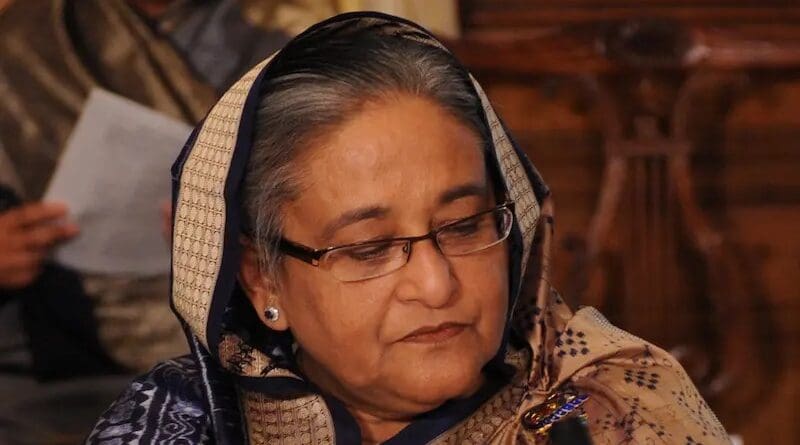What Does Upcoming Munich Security Conference Forbear For Bangladesh? – OpEd
The upcoming Munich Security Conference (MSC), scheduled to be held on the 16th of February, is going to be the first foreign visit of Prime Minister Sheikh Hasina post-election. Dubbed as the ‘Davos of Defense’, MSC gathers high-profile top leaders around the world to discuss pressing security issues.
PM Hasina has been invited to attend the conference where the focus will be on the ‘global south’ cooperation this year. Traditionally, security has been billed as a part of high politics. So, naturally, states which are seated at the top of the world order hierarchy are the direct beneficiaries of such talks. However, these traditional realist views are slowly starting to fall out of favour for a more inclusive outlook on security. With two full-blown wars and more and more regional conflicts surfing on the face of the earth, global security has become more crucial than ever.
For Bangladesh, the conference signifies multifaceted objectives. Security in a conventional sense (i.e., hard power) is not always the top priority for Bangladesh. In the Conference of 2022, the Security Index report identified ‘Climate Change’ as the top security risk factor and the then Foreign Minister echoed the report for ensuring climate funding in the context of Bangladesh. Although it is yet to publish the top risk factor for 2024 (during writing of this article), conjectures are strong as to what will be on the agenda for Bangladesh this year. The official statements issued by the government stressed ‘bilateral talks’ on the sideline of the conference. Bilateral talks have become a top instrument in diplomatic negotiations for developed and developing countries alike. The success that bilateral talks had showcased in previous instances, indicates that it is a more practical approach to adopt.
At present, Bangladesh is facing a wide array of traditional and non-traditional security issues. On the frontier, the Civil War in Myanmar is alarmingly spilling over on this side of the border. With two recent casualties, the War on the other side is proving to be a concern for the security of Bangladesh. Bangladesh has long maintained a civil relationship with the Junta government despite the Junta being responsible for the expulsion of the Rohingyas. Such border skirmishes are embarrassing for the neighbouring government’s governance capability. Hence, one could intercept the issue of Myanmar being on the agenda of the ‘bilateral talks.’
Bangladesh’s election has been the town’s talk, with myriads of national and international actors trying to jibe in. Many international news outlets attempted to paint the country in a gloomy manner, sidelining the fact that Bangladesh has made significant improvements in human development coupled with impressive economic growth. Hence, the visit of the PM is substantial as a symbol of an elected people’s representative on the world stage. The last time the PM paid a visit was in 2019. Hence, one can intercept the connection. However, this year, the presence of the PM is going to be different from the previous years. Bangladesh has a vital role as the conference’s primary focus is going to be the global South this year. As the country is going to graduate soon from LDC, Bangladesh will be billed as the bearer of the mantle for up-and-coming emerging economies of the global south since statistics indicate that Bangladesh will become the 20th largest economy in the world by 2038.
The economic significance has a spill-over effect on security issues. Bangladesh is a geo-strategic state, meaning that its geography bears strategic importance as it is situated at the onset of the Bay of Bengal, bordering India and Myanmar. In the regional context, ethnic insurgencies have marred The South Asian region with almost no exception. Hence, conventional security mechanisms bear significant importance in South Asia. The Munich Talks presents a better forum to discuss such pressing issues bilaterally. On the other hand, in the context of geopolitical tensions denoting rivalry between major regional powers – India and China, Bangladesh often sits in a peculiar position in the pursuit of balancing. Bangladesh has had to watch out not to get embroiled in this great power politics along with ensuing national interest. Bilateral talks as a mechanism of negotiation has more potential to debunk misunderstandings. Hence, the PM’s participation adds more credentials to the pressing issues.
With practicality in mind, the PM’s visit to the Munich Conference signifies realpolitik, and onlookers can expect the conference’s outcome to affect policy prosecution in the days to come.

